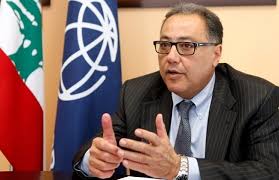The World Bank has advised Nigeria to explore further the opportunities availed by the Value Added Tax (VAT) to boost her non-oil internally generated revenue (IGR) in the years ahead..
Specifically, the Bank recommended that the fiscal authorities should consider the option of increasing the VAT, excises and customs, and states’ internally generated revenues
To achieve this, the Breton Woods institution stated that it required strengthening tax administration and increasing compliance rates, and reforms including rationalizing tax incentives and exemptions and selectively increasing rates such as excise on alcohol and tobacco.
This is even as the bank also expressed plans to increase its funding to Nigeria by $4.5 billion over the next three years to support projects in the power and health industries and in governance.
The bank’s Vice President for Africa, Hafez Ghanem, explained: “This is indicative — in the next 18 months or so, we expect to put in place projects for around $2.5 billion,”
“We are thinking about financing more investments in power and the area of social protection.” The Washington-based institution currently has 30 projects estimated at $10 billion in Nigeria”, he added.
Lately, the International Monetary Fund (IMF) predicted that Nigeria’s economy would expand 2.1 percent this year.






